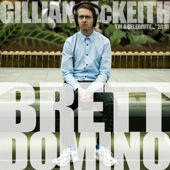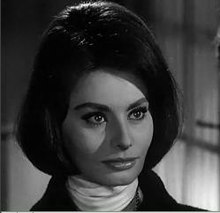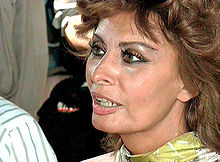Yesterday, from 11 am to 2 pm, the water was turned off.
The signs had been up at the top of the street since before Thanksgiving. I had duly made note of it. And then, promptly forgot it.
I didn't remember until I went to take a shower before running into town for an appointment. I stopped off first at the loo and when I went to flush, there was nothing. My first thought was that the toilet had broken, so I removed the cover on the back of the tank to check, muttering about how much money it was going to cost me to get a plumber.
It was empty. No water. What?
I turned on the faucet at the sink. Nothing. What?
Suddenly, my memory was flooded with images of the signs that had been at the top of the street: WATER OFF. November 29. 11-2. SORRY FOR THE INCONVENIENCE.
"No you're not," I grumbled. I was surprisingly annoyed. At myself for not remembering. At whoever "they" were for having the temerity to leave me without water when I wanted it. At not having water. Now. Right now.
The term, I think, is "On demand".
"For granted" may be more accurate.
After a bit of grumbling, I boiled up some of the water left in the electric kettle in the kitchen and made myself a cup of tea. I think it was more out of spite than an actual need or even want.
At some point, as I was savoring the taste and the warmth of the tea, I found myself annoyed that I had become annoyed. What's wrong with you? You have a lovely, cozy home with a window on creation. Your health is good. You have a fridge filled with more food than you can eat. A wonderful family. Good friends. Meaningful, compensated work. A little savings in the bank. And, you're going to grumble about not having water for a few hours?
What's wrong with you?
And then, her face came to me.
I don't remember her name, if she ever told me. It was 2005. I was in a remote village in Tamale, in the northern part of Ghana.
It was a scene right out of "National Geographic". Clay huts with thatched roofs and dirt floors. No electricity. No running water. Women dressed in garments made of brightly colored African cloth. Naked children scurrying here and there, giggling in the universal language of carefree, youthful delight.
Give a kid - any kid, any where - a stick and a round object to hit, bring along some other kids and, before you know it, you have a game. And, giggles.
Some of the women were returning from the local water pump, a miraculous new innovation which had recently been installed at the village well by a local Christian charity organization.
The women would gather in the morning in small groups of five or six and walk the mile or so to the well where they would, in turns, hand pump the water into large 20 gallon cans which they balanced on their heads.
I marveled at their strength and endurance and balance, even as I worried about how much it was, exactly, that 20 gallons of water might weigh and what that might be doing to their spinal column.
One woman saw me looking at her, slack-jawed and stunned, and smiled as she politely said, "Good day, madam."
I returned the salutation, after a bit of self-conscious stammering, and said something stupid like, "Oh, my, that must be very heavy."
She smiled kindly and said, "It is what we do." And then, smiling slyly, asked, "How else is it to be done? How do you get your water?"
"Well," I said, "I go to the faucet at the sink."
"Faucet?" she asked, feeling the foreignness of the word on her lips.
"Yes," I said, clearing my throat, "I suppose it's like a pump, except you don't have to actually pump. You just turn the handle and the water comes out."
She looked incredulous. I mean, it was enough of a miracle to her that one could now actually pump water instead of drawing it out in buckets and hauling it up the well to be dumped into her 20 gallon can of water.
"You just turn the handle? Oh, my!" She shifted her weight under her heavy load. I wanted to tell her that she could put it down for a minute while we talked and I would help her carry it back to her home, but before I could offer, she continued.
"And, where is this faucet and sink?"
"Well, it's in my kitchen . . . in the place where I cook. . .in my home."
"In your home?" she asked, again, astounded.
"Yes," I said. "Where I live, in the U.S., every home has a faucet with running water. Sometimes several. In the kitchen. In the bathroom . .. . "
And then, I saw her looking at me. She was no longer astounded. She looked . . . sad. Yes, decidedly sad. I immediately thought to myself, "Oh, no! I've become the 'ugly American', boasting of our wealth and conveniences."
"I'm sorry," I said, "I didn't mean . . . "
"Oh, no," she said. "It is I who am sorry."
I looked into her eyes and suddenly realized that her sadness was sympathy. She felt sad for me. Sorry. For ME. I returned her honest sympathetic gaze with my own honest confusion and curiosity.
She shifted her weight again, and sighed, "How do you tell your stories?"
"What? I mean, excuse me?"
She extended her hand to mine, as if she were consoling an impoverished person, and said, "If you do not have a well where you go and get your daily water, how do you tell your stories?"
Slowly, slowly, I began to realize what she was saying.
She was talking about the power of stories to build community. She was speaking the truth about how stories can inspire and educate. How they can hurt and heal. Stories are one of the building blocks of the formation of identity.
Poet and political activist
Murial Rukeyser once wrote "the universe is made of stories, not atoms."
The woman I met in Tamale, Ghana, knew that and was teaching it to me, poor benighted soul that I am.
Shortly after I returned home from Ghana, I rediscovered a book on my shelf, "
The Faithful Gardner: A wise tale about that which can never die," by Clarissa Pinkola Estes.
It begins with these words,
"How did stories come into being? Ah, stories came into the world because God was lonely." It continues with an enchanting retelling of the Creation Story:
"God was lonely? Oh yes, for you see, the void at the beginning of time was very dark. The void was dark because it was so tightly packed with stories that not even one story stood out from the others.
Stories, therefore, were without form, and the face of God moved over the deep, searching and searching - for a story. And, God's loneliness was very great."
Estes continues her story of God creating the heavens and the stars and moons and planets, and the land and the waters and the air - and all the creatures of the land and water and air, and then writes:
"Yet even with all these wondrous creatures and all these magnificent stories, even with all the pleasures of creating, God was still lonely.
God thought and paced and paced and thought and finally! it came to our great Creator. "Ah, let us make human beings in our image, after our likeness! Let them care for and be cared for in return, by all creatures of the sea, all those of the air, and all those of the earth."
So God created human beings from the dust of the ground, and breathed into their nostrils the breath of life, and human beings became living souls: male and female God created them. And as these were created, suddenly, all the stories that go along with being completely human also sprang to life, millions and millions of stories. And God blessed all of these, and placed them in a garden called Eden.
Now God strode through the heavens, wreathed in smiles, for at last, you see, God was lonely no more."
Our bodies may not be able to live without water, but I think our souls die without stories.
Indeed, I think there is a Very Great Thirst in our land, because we have become disconnected from each other's stories. So, we become arrogant and petulant and easily annoyed by minor inconvenience - like not having water, clean water, flowing freely from faucets in our own homes whenever we want it.
Our world becomes smaller and smaller, until it revolves only around us. We become our own planets, in our own orbits, spinning in our own sense of infinity.
If we do not share our stories, why should we share anything else?
Gather a bunch of little kids and say, "Once upon a time. . ." and they will soon be gathered, sitting 'round your feet, listening. There's something of a little kid in each of us, waiting, longing to hear a good story. And perhaps, tell one of our own.
Indeed, our faith is not built on atoms, but on stories. Scripture is filled with them. Stories of scoundrels who became saints. Stories of betrayal and friendship. Of great vulnerability and bold courage. Of tragedy and triumph.
Stories are a part of how we know who we are. And, whose we are.
Estes begins her book with this benediction, "We have an old family blessing,
Whomsoever is still awake at the end of the night of stories, will surely become the wisest person in the world."
Stories, I have come to believe, are the water of life. They flow through you and they flow through me. The challenge is that they sometimes become frozen in place by greed or arrogance and need to be set free to be told and enjoyed and cherished, one by one.
This, in fact, may be why God created water. And fire. And air. And land. To give us a place where we may gather to share and be warmed and inspired by the simple stories of our lives.
So that we might share with others the abundance we have been given.
And, not be lonely.
I have been given a story of wisdom by the wisdom and sympathy of a very wise woman in Tamale, Ghana, who, I'm guessing, is the last one to sleep at the end of the night of stories.
May it be so for you.
May it be so for me.
May it be so for us all.














































